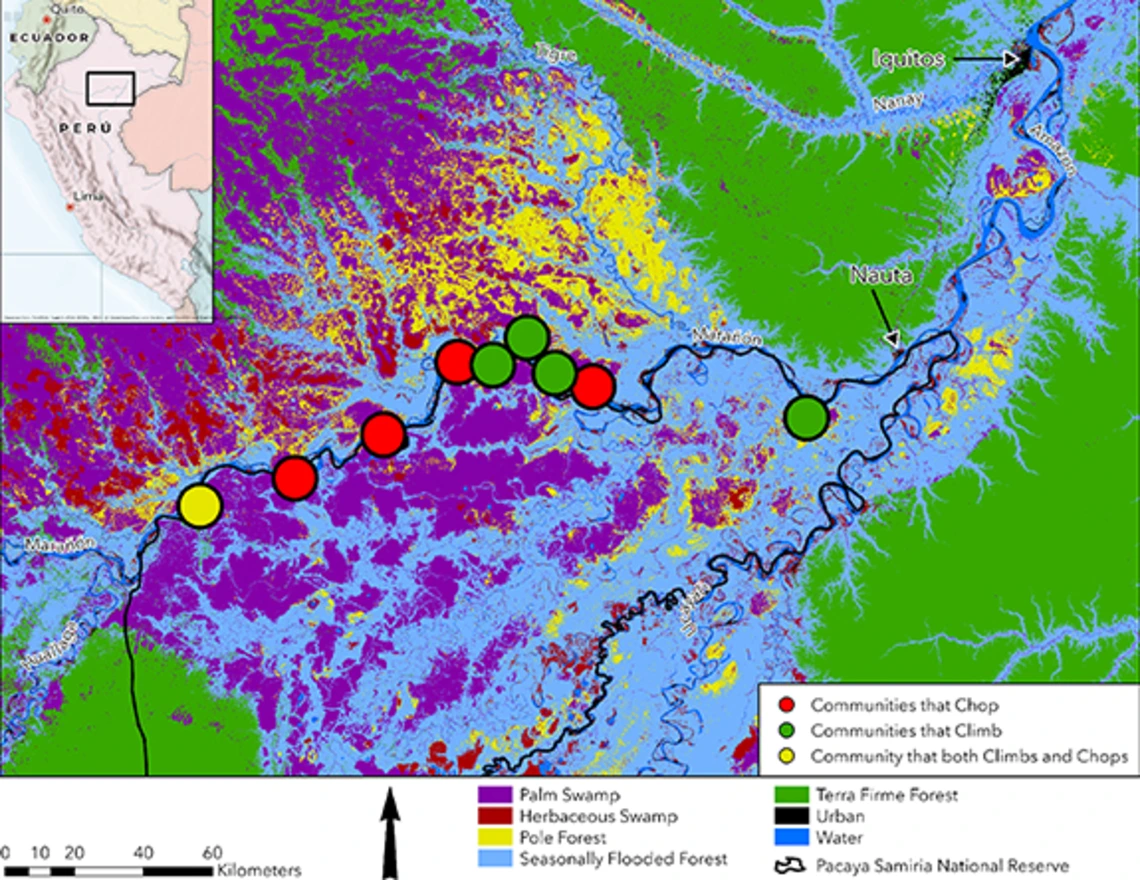A well-documented environmental threat in the Amazonian region of Loreto, Peru involves harvesting the fruit from the dominant palm Mauritia flexuosa by chopping fruit-bearing females growing in carbon-dense peat swamps. Numerous conservation interventions have been proposed to protect the swamps, such as encouraging harvest of fruits by climbing the palms to preserve the resource instead of cutting them. These efforts have produced mixed success; some communities have embraced sustainable harvest methods, while others have not, despite the obvious benefits of climbing and the simple technology required. In this study, we aim to understand why some communities opt to harvest fruit sustainably while others do not, and to assess whether the experience of communities sustainably harvesting offers broader lessons for ecosystem management. Nine communities were visited in Loreto, where in-depth interviews were performed to identify economic, institutional, and cultural elements linked to fruit extraction practices. Field measurements were produced to evaluate ecological characteristics in harvested swamps nearby communities that mostly climb or mostly chop. The five communities that mostly climb placed high importance on the fruit, had resource management rules, and derived significant material benefit from the fruit. In contrast, the four communities that mostly chop derived only a marginal economic benefit from the fruit and tended to face obstacles to building systems of sustainable management of common property, such as poverty and problems associated with pollution from the oil industry. One community embraced climbing 30 years ago and observed remarkable social, economic, and environmental benefits. Through sustained support from NGOs and the regional government, this community was empowered to build a system of sustainable resource management on its own terms. Its capacity to develop and enforce its rules of harvest, ensured through robust communal trust, was key to its success.
Professor Mathew Marcus Publishes New Paper
April 29, 2025
Image

Professor Mathew Marcus has just published a paper in Environmental Research: Food Systems. Kudos Matthew.
To climb or to fell? Identification of social-ecological conditions that promote sustainable fruit harvesting in Lowland Amazon palm swamps
Matthew S Marcus*, Kristell Hergoualc'h and Víctor Hugo Gutiérrez-Vélez

